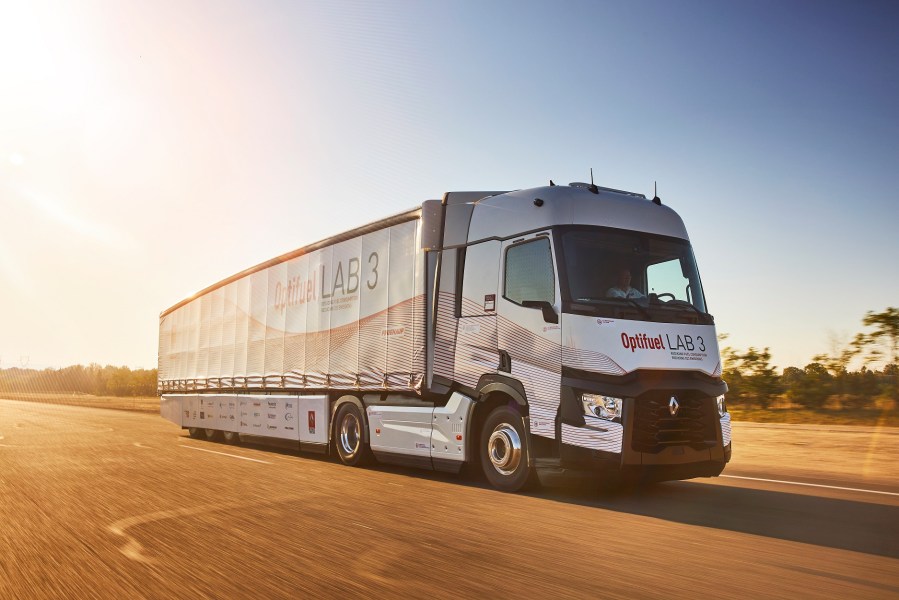Renault’s research truck, the Optifuel Lab 3, has recently completed testing that brings some good news for operators.
The long-distance laboratory recorded a reduction of 12.5% in fuel consumption, compared with a conventional coupling.
Specifically, the saving was achieved through changes to the powertrain and tyres.
In addition, predictive driving support and energy management techniques were also used.
These functions were evaluated under real driving conditions on a representative customer cycle.
Elsewhere on the project, Renault’s new optimised adaptive cruise control strategies using BeNomad navigation data was adopted.
The Optifuel Lab 3 spent six months on tracks and public roads, covering 15,500km in that time.
Therefore, engineers were able to comfortably say that the 12.5% consumption reduction over a Range T with standard trailer was genuine.
Engineers on Renault’s research truck used a test cycle that included 68km of urban driving and 136km on motorways.
Meanwhile, simulations were also used to analyse and corrolate the measurements.
The latest work is part of a research effort that began in 2017 with the FALCON project.
It set out to reduce fuel consumption on a tractor-trailer combination by 13%.
FALCON is a consortium led by Renault Trucks, including Faurecia, Michelin, Total, and Fruehauf.
In addition, Wezzoo, BeNomad, Styl’Monde, Polyrim, Enogia, IFPEN and the École Centrale de Lyon (LMFA) are also involved.
The project has confirmed how effective the technologies are in reducing fuel consumption.
Therefore, the work is enabling Renault to prepare technical solutions for its future products.
Although Optifuel Lab 3 is not destined to be marketed in this form, the most effective technologies could be incorporated into serial production trucks.






